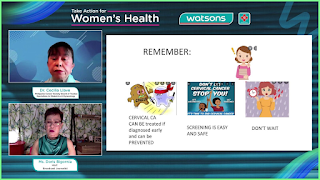On May 25, 2025, over 1,000 participants gathered at Parqal Mall in ASEANA City, Parañaque, for the Run Against Cervical Cancer (RACC). This event marked the start of Cervical Cancer Awareness Month and aimed to raise awareness about prevention and early detection.
Organized by MSD Philippines and the Pharmaceutical & Healthcare Association of the Philippines (PHAP), the run featured 3km and 5km routes. Runners included families, cancer survivors, healthcare professionals, and advocates, all united by a common cause.
Personal Stories of Strength
Among the participants was Lorely Magalona, who dedicated her run to her mother, a cervical cancer victim. Lorely, now 40, runs 10km daily and has completed an 80km ultramarathon. She shared:
“You benefit from exercise in more ways than one. We all want to live longer and healthier lives.”
Senior athletes like 78-year-old Rosalinda Ogsimer and 67-year-old Patricio Punzalan also joined, showing that age is no barrier to fitness or advocacy.
The Importance of Prevention
Cervical cancer remains a leading cause of death among Filipino women, with 7,897 new cases and 4,052 deaths annually. The primary cause is persistent infection with the human papillomavirus (HPV). Vaccination against HPV, especially among girls aged 9 to 14, significantly reduces the risk of developing cervical cancer later in life. However, vaccination coverage in the country remains low, hindered by misinformation, limited access, and lack of awareness.
The RACC event highlighted the World Health Organization’s 90-70-90 goals for eliminating cervical cancer by 2030:
- 90% of girls fully vaccinated against HPV by age 15
- 70% of women screened with high-performance tests by 35 and again by 45
- 90% of women diagnosed with cervical disease receive timely treatment
Voices for Change
Advocates like content creator Charm de Leon and media personality Andi Manzano emphasized the importance of vaccination and early screening. Charm de Leon encouraged women to take charge of their health:
“If you’re waiting for a sign, this is it. Get screened, research the HPV vaccine, and follow credible voices in health.”
Former national football player and coach Belay Fernando-Dela Cruz, a Stage 3B cervical cancer survivor, likened the run to her cancer journey:
“Sometimes you’re running alone, sometimes with others. But what matters is showing up and staying the course.”
Community Support and Advocacy
Quezon City District 1 Councilor Charm Ferrer, a Stage 3C cervical cancer survivor, shared her own advocacy after undergoing 36 rounds of radiation, 4 brachytherapy sessions, and 6 chemotherapy treatments. She called on other local government units to replicate Quezon City’s Comprehensive Cervical Cancer Elimination Ordinance, which expands access to HPV vaccines and screening services.
MSD Philippines President and Managing Director Andreas Riedel closed the event with a powerful reminder:
“Cervical cancer is preventable. The solutions are here—vaccination, screening, and treatment. What we need now is action.
Take Action Today
Cervical cancer is preventable. Vaccination and regular screening are key to protection. Join the movement. Together, we can eliminate cervical cancer.














